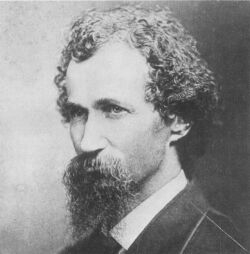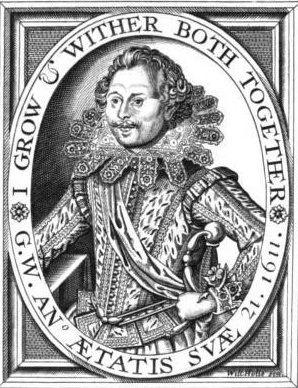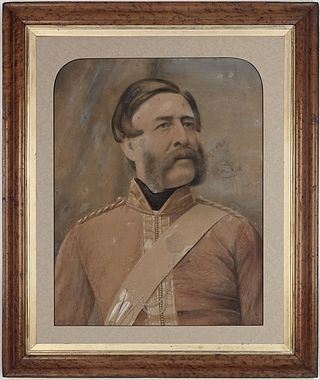
Thomas Henry Kendall, was an Australian author and bush poet, who was particularly known for his poems and tales set in a natural environment. He appears never to have used his first name — his three volumes of verse were all published under the name of "Henry Kendall".

George Wither was a prolific English poet, pamphleteer, satirist and writer of hymns. Wither's long life spanned one of the most tumultuous periods in the history of England, during the reigns of Elizabeth I, James I, and Charles I, the Civil War, the Parliamentary period and the Restoration period.

Up The Line To Death: The War Poets 1914–1918 is a poetry anthology edited by Brian Gardner, and first published in 1964. It was a thematic collection of the poetry of World War I.
Arthur James Marshall Smith was a Canadian poet and anthologist. He "was a prominent member of a group of Montreal poets" – the Montreal Group, which included Leon Edel, Leo Kennedy, A. M. Klein, and F. R. Scott — "who distinguished themselves by their modernism in a culture still rigidly rooted in Victorianism."

Elaine Goodale Eastman (1863–1953) and Dora Read Goodale (1866–1953) were American poets and sisters from Massachusetts. They published their first poetry as children still living at home, and were included in Edmund Clarence Stedman's classic An American Anthology (1900).
Nationality words link to articles with information on the nation's poetry or literature.
Bertram William Mathyson Francis Stevens was Australian journal editor ; literary and art critic; and anthologist.

Ninian Melville was an Australian politician in the late nineteenth century.
"Bell-Birds" is a poem by Australian writer Henry Kendall that was first published in The Sydney Morning Herald on 25 November 1867.
"The Last of His Tribe" is a poem by Australian writer Henry Kendall that was first published in The Sydney Morning Herald on 27 September 1864, under the title "Woonoona: The Last of His Tribe".
Andy's Gone With Cattle is a poem by Australian writer and poet Henry Lawson. It was first published in The Australian Town & Country Journal on 13 October 1888.
This article presents a list of the historical events and publications of Australian literature during 1880.
"Bill the Bullock Driver" is a poem by Australian writer Henry Kendall that was first published in The Australian Town and Country Journal on 1 April 1876.

The Teams is a poem by Australian writer and poet Henry Lawson. It was first published in the Australian Town and Country Journal on 21 December 1889. It was later published in the poet's poetry collection In the Days When the World Was Wide and Other Verses in 1896.
Songs from the Mountains (1880) is the third collection of poems by Australian poet Henry Kendall, and the last to be published during his lifetime. It was released in hardback by William Maddock in 1880, and features the poet's widely anthologised poems "Bill the Bullock Driver", and "Araluen".
Where the Pelican Builds is a poem by Australian poet Mary Hannay Foott. It was first published in The Bulletin magazine on 12 March 1881, and later in the poet's collection Where the Pelican Builds and Other Poems (1885).

Henry Halloran was an Australian poet and civil servant who was born in Cape Town, South Africa on 6 April 1811.
The Wind at Your Door (1959) is a one-poem volume by Australian poet R. D. Fitzgerald. The poem was originally published in The Bulletin on 17 December 1958, and later in this 275 copy Talkarra Press limited edition, signed by the author. It won the Grace Leven Prize for Poetry in 1959.
"A Death in the Bush" (1868) is a long narrative poem by Australian poet Henry Kendall. It was originally published in the 1868 edition of Williams's Illustrated Australian Annual, and later appeared in the author's collection Leaves from Australian Forests (1869).
"Song of the Shingle Splitters" (1874) is a poem by Australian poet Henry Kendall.






